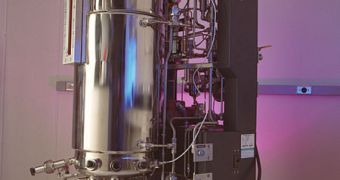Scientists announce the creation of a new type of bioreactor, which has the ability to promote the development of bone cells in a manner that is more cost-efficient than any others. According to the research team behind the accomplishment, the advanced system is capable of eliminating some of the steps in the bone cells production process. Additionally, it provides close monitoring capabilities for scientists, so that they can keep an eye on how the cells grow, and direct this process most efficiently.
The bioreactor was developed by researchers at the University of Twente, in The Netherlands, who were led by expert Frank Janssen. The scientists decided to get involved in this line of work in order to help people who need bone transplants. They explain that sometimes, following accidents or injuries, patients have so much damage in a bone fragment, that this needs to be replaced by another fragment. The way researchers want to do this is by incubating stem cells from the patient's own bone marrow into a bioreactor, alongside a carrier material fit for the job.
This is one of the most promising techniques to date, experts say, even though the field of research was thus far associated with numerous issues. With the development of the new bioreactor, creating the synthetic bone tissue may become easier than ever. There are numerous advantages to using a patient's own stem cells for the job, the largest of which being the fact that that person's body would not reject the transplant, if it can recognize the cells as its own. According to Janssen, this may become possible and ready to implement within 5 to 10 years tops.
One of the reasons why the new reactor functions so well is that it features a closed system. This means that all of the parameters associated with cell cultivation are fed into a computer, which controls all of its aspects. These include temperature, acidity, as well as oxygen use, and the entire system is accessible online. In this manner, detecting abnormalities in the cellular growth process becomes a lot easier, which means that the system as a whole will become a lot less prone to error, PhysOrg reports.

 14 DAY TRIAL //
14 DAY TRIAL //